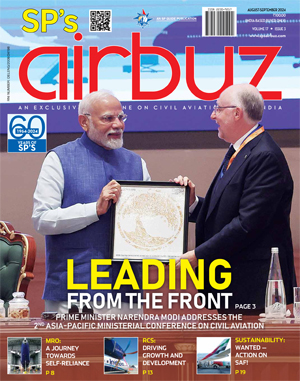Whither Airport Security?
CISF is the largest industrial security force in the world providing security cover to over 300 industrial units in the country. It is also entrusted with the responsibility of providing security at all commercial airports in India whether under private ownership or operated by AAI.
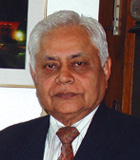 |
By Air Marshal B.K. Pandey Editor, SP's Airbuz |
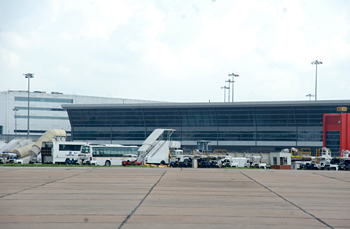
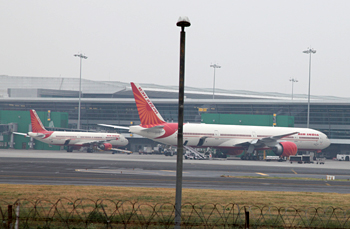
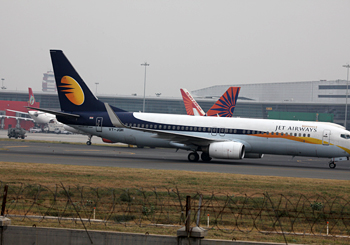
On the night of June 10, 2015, at around 2145 hours, there was an ugly spat between employees of Airport Authority of India (AAI) and the constables of the Central Industrial Security Force (CISF) deployed at Karipur International Airport, Kozhikode, Kerala. In the episode, a constable of the CISF identified as SS Yadav, lost is life on account of a gunshot injury to his cranium and left three others injured in the violent clash between the two groups.
As per reports in the media, CISF personnel on duty at a point of entry into the airport, reportedly asked a senior official of the Airport Fire and Rescue Services named Sunny Thomas to show his entry pass. When the latter reportedly refused to do so and attempted to force his way past the checkpoint, CISF constable SS Yadav who was armed intervened. In the ensuing scuffle with Thomas, the gun in Yadav's possession went off accidentally causing serious head injury to which he succumbed soon after. On learning of the incident, the other CISF personnel on duty turned violent leading to a clash between the personnel of the two agencies manning the airport. Passengers and visitors to the airport including taxi drivers also fell victim to the wrath of the CISF personnel who had gone berserk turning the airport virtually into a war zone as described by eye witnesses. As a result of the clash, the airport was shut down for ten hours disrupting scheduled international and domestic operations. It is understood that in the recent past, there had been an ongoing dispute between the personnel of AAI and CISF over mandatory inspection of entry pass at the gate as a result of which the situation at Karipur International Airport had for some time been tense.
Established on March 10, 1969 under an Act of Parliament, the CISF was recast as an "Armed Force of the Union of India" on June 15, 1983 once again under another Act of Parliament. Raised initially with 2800 personnel, the strength of CISF today stands at over 165,000 and is slated to rise to 2, 00,000 before the end of the decade. Functioning under the control of the Ministry of Home Affairs (MHA), the CISF is the largest industrial security force in the world providing security cover to over 300 industrial units in the country. It is also entrusted with the responsibility of providing security at all commercial airports in India whether under private ownership or operated by AAI.
In the past, the responsibility of providing security to commercial airports lay with the civil police of the state in which the airport was located. However, the proposal to hand over airport security to CISF was initiated after the incident of hijacking of Indian Airlines flight 814 in 1999. In February 2000, Jaipur became the first airport where the CISF was made responsible for providing security. Currently, CISF provides security services at around 60 airports in the country, both international and domestic. However, a notable anomaly that afflicts the system is that the AAI and the CISF that together are responsible for the management of a commercial airport, are under the control of separate ministries of the central government. Unfortunately, perceptions of the two ministries may differ. This could be one of the possible reasons why relations between the two departments in question have not always been cordial.
While the clash of the scale witnessed at Karipur had not been reported so far, there have been the occasional tussle between personnel of the two departments in question that have had adverse effect on operations. Also, there has been the occasional report of conflict between passengers and CISF personnel and sometimes even allegations of misbehaviour by the latter with passengers including women and children. An objective analysis would reveal that both the CISF personnel and passengers contribute to the conflict. As per sources in the CISF, "the public in general bear an animosity to men in uniform, a deep-rooted mindset that gets ingrained over time". On the other hand, it needs to be understood that given the strata of society from which personnel of the CISF are drawn, there is undoubtedly the need to carryout regular reorientation programmes to enable them interact with passengers with a higher degree of elegance. But what should be of greater concern to the government is that such incidents impinge on the international image of the management of the civil aviation industry in India.
It is about time the government reviews and restructures the management of commercial airports in the country. The department responsible for the management of an airport and that for providing security, need to be accountable to a single authority for better coordination and control. Without such restructuring, there is a strong possibility that the malaise will persist.





